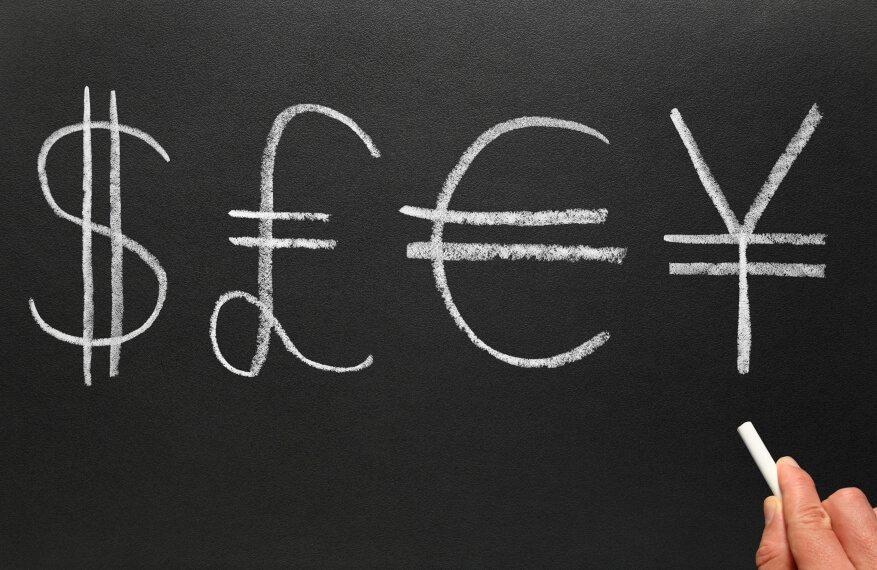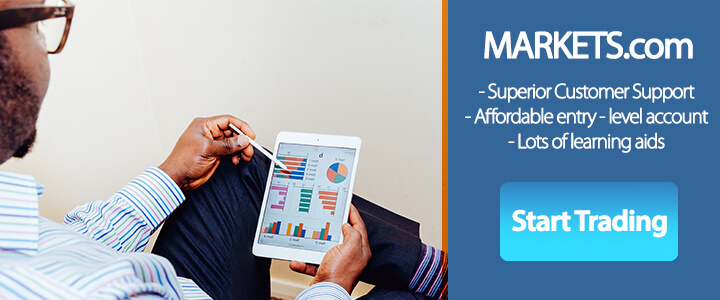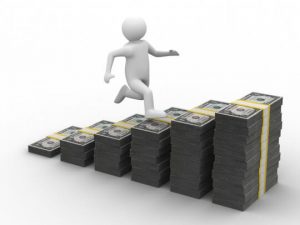What is Forex? If we had a dime for every time someone asked us this question. Usually, most people only know what they’d heard or read somewhere and have no idea as to what is forex trading and how does forex trading work. Well, to answer all these questions in a timely and satisfactory manner, a simple forex tutorial is needed – forex for dummies, if you will. So let’s see what this forex trading is all about, shall we?

Table of contents:
- What is Forex
- How Can You Make Money From Forex?
- When to Buy and When to Sell?
- Step-by-Step Guidelines
- What About Risks?
- Finding Reputable Forex Brokers
- Where to Learn More?
What is Forex?
First of all, we need to explain few things, like what is forex trading and how does it work. In order to eliminate all the confusion! The word stands for “Foreign Exchange”, and believe it or not, it has been here for a while. Back in the day, major banks, corporations, billionaires and other players would have their own brokers at an exchange where their only goal was to swap currencies.
For instance, a U.S. company doing business abroad would have to convert their profits to U.S. dollars, and it would need someone who can facilitate the exchange. Another company is doing business in the U.S. but needs foreign currency. These major players would help each other out, and the middlemen would get a nice profit on the side. Then, things became computerized, someone figured out they could make a ton of money trading currencies and the rest is history. Most of the old players are still around, but now even ordinary people have access to the same playing field.

From an ordinary person’s perspective, the answer to what is forex and how it really works might look a bit like this: the way forex works is you acquire some foreign currency, you wait for its value to increase, you swap it back for your base currency and voila – you’ve made a profit without breaking a sweat. The exchange rate changes constantly and the idea is to take advantage of this while getting the best value for your currency as possible.
Basically, you are trading money – it is both the goods and the pay, except you won’t be able to use the currencies you trade on forex markets for anything else. You can’t buy $1,000,000 and transfer that to your bank account. That is not the answer to question what is forex.
How Can You Make Money From Forex?
 As the largest financial market in the world, there is more money to be made on forex than there is on Wall Street! Forex trumps stocks, indices, commodities and almost any kind of trade there is in the world by a huge margin. Plus, it works around the clock, more than 5 days a week. Contrary to the popular belief, currencies are actually bought in bulk. A basic unit is called “lot” and it stands for exactly 100,000 units of a single currency.
As the largest financial market in the world, there is more money to be made on forex than there is on Wall Street! Forex trumps stocks, indices, commodities and almost any kind of trade there is in the world by a huge margin. Plus, it works around the clock, more than 5 days a week. Contrary to the popular belief, currencies are actually bought in bulk. A basic unit is called “lot” and it stands for exactly 100,000 units of a single currency.
Well, the more currency – or lots – one can obtain, the more money they can make once the market goes their way, or lose if it goes against them. You have to spend money to make money! And since what forex is all about is exploiting minute changes in the exchange rate, you are going to need to trade big if you plan to make any real money. In other words, you are going to need to borrow money for your trades, and pay it back after the trade is done. This borrowed money acts as a leverage of sorts, so you can maximize your strokes of luck.
Here’s one possible scenario! You have $3,000 and you believe that another currency is about to spike in value. But if you only trade a $3,000’s worth of foreign currency, you’d be working for peanuts. So what a forex trader would do instead is use the $3,000 as leverage and make a $600,000 trade instead. This is what forex is; its magic is to multiply the profit by a huge margin. Instead of a few dollars, this trade would earn you almost 200 times as much, but only if your predictions are correct. Some brokers can offer a margin of 1% on a deal, meaning the minimum amount you need to put down yourself is 1% of the entire investment. Of course, the profits would have to be enough to pay back all the expenses, fees and other costs, but what is left should be more than enough to make it worth your while – in theory.
When to Buy & When to Sell?
The basic principle is relatively straightforward – you buy low and sell high, rinse and repeat. As to how do you know whether the price is right or not – well, this question is even more difficult to answer than “what is forex?” Let’s take a look at our earlier example.

You have $3,000 and you are looking to invest. After completing your fundamental analysis, you have concluded that there might be a something to the EUR/USD currency pair, where EUR is the base currency and USD is the quote currency. For instance, you think the U.S. economy is going to weaken, meaning your $3,000 won’t be worth as much in the near future. You have decided to execute a buy order on the EUR/USD pair, using some forex magic. Once the Euro rises against the U.S. dollar, you sell your lots and end up with a lot more than the $3,000 you originally started with. On the other hand, if your conclusion is that the EU economy is about to take a huge hit because of political instability, refugees or any other reason, selling the EUR/USD is a priority before your capital takes a hit as well.
This is by far the trickiest part – what forex is really all about. Trying to predict which currencies will strengthen and which are going to weaken is an extremely challenging task, and there is no consensus on how to do that. And yet, this is exactly what you must do in order to make money on forex. The only thing you can do is get appraised on forex matters, specialize in a few currencies and the economies behind them. In other words, do your homework. Analyze everything and try to figure out how things are going to play out. And act accordingly. Your guess is as good as anyone else’s.
Step-by-Step Guidelines
Still unsure what forex is and how to trade? The answer to what is forex has not yet settled. Well, here is a short list of things you need to do to prepare yourself for all the challenges out there.
- Step 1 – Make sure you fully understand all that forex terminology, such as base and quote currency, long and short positions, bid and ask price, spreads and all those things.
- Step 2 – Find the right broker and sign up.
- Step 3 – Go through all the forex quotes on the platform in order to appraise the situation. Forex quotes are the bid and ask price. Those two numbers in the “bid” and “ask” columns… Those are it. The first one tells you the best price you can get if you are looking to exchange your base currency for your quote currency, and the ask price is the best one you can get if looking to exchange quote currency for your base currency. The difference between bid and ask price is called the “spread” and most brokers make their living off of it.
- Step 4 – Decide which currency pair to trade, based on your predictions for the economy. You can look at the economic performance of the countries whose currencies you are about to trade, their political situation, how well do they do on their trade deficit, if they have a lot of goods to sell, whether their central banks take a more active role in maintaining the exchange rate etc. GDP and various reports on economic factors will be your main sources of information, so study them well. Basically, you are looking for anything that might affect the value of a currency.
- Step 5 – Calculate your profits (link to article trading forex for a living). This is where pips come in. A pip is the smallest decimal in the forex quote, so if the EUR/USD moves from 1.224 to 1.234, the value has increased by 10 pips. Make sure the price movement will cover the costs of the trade as well as make up for any additional costs.
- Step 6 – Place your orders. Placing a market order will tell the broker to try and execute the trade at whatever the current rate is, or the next best thing. Placing a limit order will instruct them to focus on a specific price instead; like, “execute order when the price reaches 2.2155” or something like that. Finally, a stop loss order tells them when to cut the losses and salvage what they can.
Note that there is no guarantee the trade will be executed on the price you desired. Also, keep in mind that forex markets open at 5pm EST Sunday (Sydney and Singapore) and close on Friday at 5pm EST (New York). Maximum leverage is typically 200:1, but in some countries like Japan or the U.S. it is more like 50:1. Administration, logistics and legal systems vary from country to country, so make sure you are familiar with the peculiarities of your home country and its trading system.
What About Risks?
 What is forex if not a big, fat, fraud? This must be the question you are asking yourselves right now. A lot of people got burned doing this, and their testimonies are all over the internet. And the successful traders don’t have the time to convince people to start trading – they are too busy working hard and don’t want to share the secrets to their success anyway. Having said that, there are some things that will invariably get in the way. There is a lot that can be said about the risks, but the most obvious include losing all your money, getting swindled by a crook or getting overcharged for the services rendered.
What is forex if not a big, fat, fraud? This must be the question you are asking yourselves right now. A lot of people got burned doing this, and their testimonies are all over the internet. And the successful traders don’t have the time to convince people to start trading – they are too busy working hard and don’t want to share the secrets to their success anyway. Having said that, there are some things that will invariably get in the way. There is a lot that can be said about the risks, but the most obvious include losing all your money, getting swindled by a crook or getting overcharged for the services rendered.
There are lots of educational materials and automatic trading software available to traders, but they should only be used to aid you in trading, and avoid paying for them if possible. Lots of brokers offer free demo accounts to practice on, so there is no need to pay for one. Also, they come with a free online library and even trading signals. With some time and effort, most of these costs can be avoided.
What cannot be avoided, however, is an occasional loss. Keep in mind that your trades need to cover all the costs of a trade before they earn you any money, so never risk more than 1% of your capital on a single trade.
Finally, by dealing with legitimate brokers and reading the small letters, most of the “pleasantries” can be avoided.
Finding Reputable Forex Brokers
There are lots of brokers out there, so here is what to look for in one? For starters, make sure they have been around for at least a decade. There are lots of frauds around the block and you need to make sure your broker knows what they are doing and have plenty of experience so they can tackle any issues that might arise. Also, check if they are regulated by a major agency or some sort of regulatory body. FCA for UK-based brokers, ASIC if they are from Australia, AMF for France, NFA for the U.S. and so on…
Also, ask around to see the reviews and blogs about the broker you are interested in, but don’t put too much faith in them, just in case. Few answers to what is forex are there. Make sure you check what kind of financial products they have to offer, their fees, spreads and other costs. Take your time and find the best offer there is.
